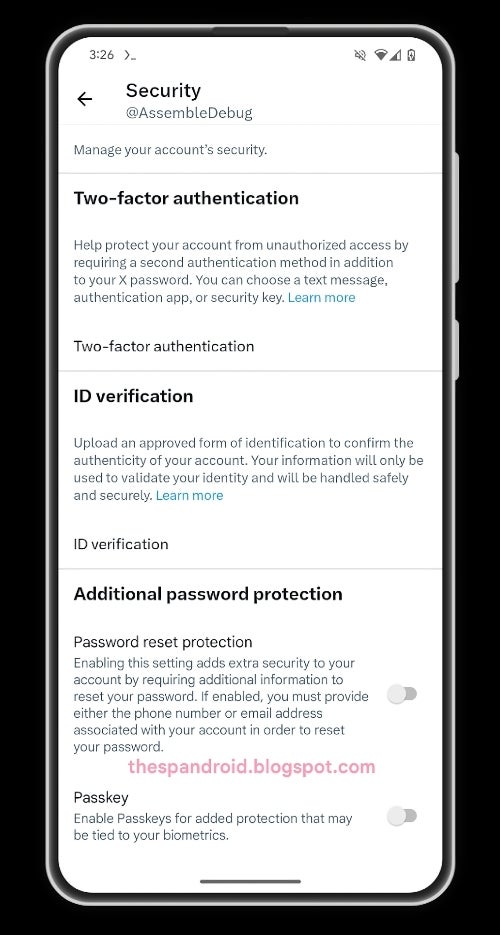X, the social media platform formerly known as Twitter, is reportedly working on bringing passkey support to its Android app, following the iOS rollout. The addition of this feature will provide a more convenient and secure way to log in to the app for Android users.
What are passkeys?
In case you are not familiar, passkeys are an alternative authentication method that eliminates the need to remember complex passwords. Instead, they rely on a combination of secure ways to authenticate, such as biometrics (fingerprint or facial recognition) or device-specific cryptographic keys. This makes your online accounts far less vulnerable to hacking or phishing attempts.
Support for passkeys has already been rolled out to the iOS version of the app, and according to findings by @AssembleDebug from The SP Android, it is soon coming to Android as well. During a code deep dive, references to the passkey feature were found in the X/Twitter beta app (version 10.32.0-beta). While forcing the feature to turn on by tweaking the code, @AssembleDebug was able to get a screenshot of the settings screen but not actually get the feature to work.


Passkeys settings found inside the X Android app | Image credit: TheSPAndroid/@Assembledebug
This suggests that the feature is actively in development, and, while not yet fully functional, is most likely close to its debut. Once launched, you’ll find the passkey settings within the X app under Settings and privacy > Security and account access > Security > Additional password protection.
A password-less future
Passkeys offer a superior level of security compared to traditional passwords. Passwords can be easily stolen, guessed, or exposed in data breaches. Passkeys, being tied to your device and often requiring biometric verification, are far more difficult to compromise.
X’s adoption of passkeys aligns with a growing industry trend toward passwordless authentication. This shift promises a more user-friendly and secure online experience for its users.
#Twitter #prepares #passkeys #support #Android


